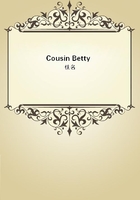
第131章
A third woman, evidently at the initial stage of her career, gazed, almost shamefaced, at the luxury of her two established and wealthy companions. Simply dressed in white cashmere trimmed with blue, her head had been dressed with real flowers by a coiffeur of the old-fashioned school, whose awkward hands had unconsciously given the charm of ineptitude to her fair hair. Still unaccustomed to any finery, she showed the timidity--to use a hackneyed phrase--inseparable from a first appearance. She had come from Valognes to find in Paris some use for her distracting youthfulness, her innocence that might have stirred the senses of a dying man, and her beauty, worthy to hold its own with any that Normandy has ever supplied to the theatres of the capital. The lines of that unblemished face were the ideal of angelic purity. Her milk-white skin reflected the light like a mirror. The delicate pink in her cheeks might have been laid on with a brush. She was called Cydalise, and, as will be seen, she was an important pawn in the game played by Ma'ame Nourrisson to defeat Madame Marneffe.
"Your arm is not a match for your name, my child," said Jenny Cadine, to whom Carabine had introduced this masterpiece of sixteen, having brought her with her.
And, in fact, Cydalise displayed to public admiration a fine pair of arms, smooth and satiny, but red with healthy young blood.
"What do you want for her?" said Jenny Cadine, in an undertone to Carabine.
"A fortune."
"What are you going to do with her?"
"Well--Madame Combabus!"
"And what are you to get for such a job?"
"Guess."
"A service of plate?"
"I have three."
"Diamonds?"
"I am selling them."
"A green monkey?"
"No. A picture by Raphael."
"What maggot is that in your brain?"
"Josepha makes me sick with her pictures," said Carabine. "I want some better than hers."
Du Tillet came with the Brazilian, the hero of the feast; the Duc d'Herouville followed with Josepha. The singer wore a plain velvet gown, but she had on a necklace worth a hundred and twenty thousand francs, pearls hardly distinguishable from her skin like white camellia petals. She had stuck one scarlet camellia in her black hair --a patch--the effect was dazzling, and she had amused herself by putting eleven rows of pearls on each arm. As she shook hands with Jenny Cadine, the actress said, "Lend me your mittens!"
Josepha unclasped them one by one and handed them to her friend on a plate.
"There's style!" said Carabine. "Quite the Duchess! You have robbed the ocean to dress the nymph, Monsieur le Duc," she added turning to the little Duc d'Herouville.
The actress took two of the bracelets; she clasped the other twenty on the singer's beautiful arms, which she kissed.
Lousteau, the literary cadger, la Palferine and Malaga, Massol, Vauvinet, and Theodore Gaillard, a proprietor of one of the most important political newspapers, completed the party. The Duc d'Herouville, polite to everybody, as a fine gentleman knows how to be, greeted the Comte de la Palferine with the particular nod which, while it does not imply either esteem or intimacy, conveys to all the world, "We are of the same race, the same blood--equals!"--And this greeting, the shibboleth of the aristocracy, was invented to be the despair of the upper citizen class.
Carabine placed Combabus on her left, and the Duc d'Herouville on her right. Cydalise was next to the Brazilian, and beyond her was Bixiou.
Malaga sat by the Duke.
Oysters appeared at seven o'clock; at eight they were drinking iced punch. Every one is familiar with the bill of fare of such a banquet.
By nine o'clock they were talking as people talk after forty-two bottles of various wines, drunk by fourteen persons. Dessert was on the table, the odious dessert of the month of April. Of all the party, the only one affected by the heady atmosphere was Cydalise, who was humming a tune. None of the party, with the exception of the poor country girl, had lost their reason; the drinkers and the women were the experienced /elite/ of the society that sups. Their wits were bright, their eyes glistened, but with no loss of intelligence, though the talk drifted into satire, anecdote, and gossip. Conversation, hitherto confined to the inevitable circle of racing, horses, hammerings on the Bourse, the different occupations of the /lions/ themselves, and the scandals of the town, showed a tendency to break up into intimate /tete-a-tete/, the dialogues of two hearts.
And at this stage, at a signal from Carabine to Leon de Lora, Bixiou, la Palferine, and du Tillet, love came under discussion.
"A doctor in good society never talks of medicine, true nobles never speak of their ancestors, men of genius do not discuss their works," said Josepha; "why should we talk business? If I got the opera put off in order to dine here, it was assuredly not to work.--So let us change the subject, dear children."
"But we are speaking of real love, my beauty," said Malaga, "of the love that makes a man fling all to the dogs--father, mother, wife, children--and retire to Clichy."
"Talk away, then, 'don't know yer,' " said the singer.
The slang words, borrowed from the Street Arab, and spoken by these women, may be a poem on their lips, helped by the expression of the eyes and face.
"What, do not I love you, Josepha?" said the Duke in a low voice.
"You, perhaps, may love me truly," said she in his ear, and she smiled. "But I do not love you in the way they describe, with such love as makes the world dark in the absence of the man beloved. You are delightful to me, useful--but not indispensable; and if you were to throw me over to-morrow, I could have three dukes for one."